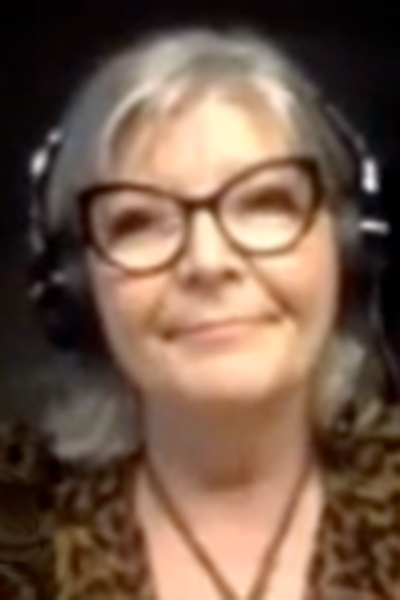
Mary T. Hart, MS, RRT, AE-C, FAARC, FCCP, considers herself “one of the lucky ones” for getting to meet Thomas L. Petty, MD, Master FCCP, in person.
“We got to share our passion for pulmonary rehab and finding ways to make lives better for those with COPD,” she said. “He’s probably the first true patient advocate I met. He spent time meeting with patients and learning from them first-hand.”
Their paths crossed early in her career. Dr. Hart always considered him an inspiration and never expected to be giving the Thomas L. Petty, MD, Master FCCP Endowed Memorial Lecture at CHEST 2020.
“He was a distinguished, respected physician and researcher who loved his patients and is known as the modern-day father of pulmonary medicine,” said Dr. Hart, adjunct professor at the University of Texas Health Sciences Center in San Antonio and the director of research at the Allergy and Asthma Network. “What an honor.”
In her talk, Dr. Hart described how real-world, patient-centered studies can change patient care and improve outcomes. Dr. Hart worked with Dr. Petty on the National Lung Health Education Program, which is a national health care initiative to promote early diagnosis of chronic obstructive pulmonary disease and related disorders. Specifically, they helped put spirometry in primary care offices.
“He taught me not just to ask questions, but to be creative, and to listen, network with doctors and researchers, and find the answers to real-world activities, but mostly, listen to your patients,” Dr. Hart said.
The duo also teamed up to show how the use of respiratory therapists in primary care practice improves outcomes. They found that, from some of the studies they did, less than 20% of primary care physicians were getting a diagnosis using spirometry in their office, and if they were doing it, it was questionable if it was performed according to guidelines. Putting a respiratory therapist in the office made a big difference in the patients’ world, they found.
“We increased quality of care by providing diagnostic testing, trigger avoidance, proper meditation technique, and self-management,” she said.
In the Improving the Lung Volume Reduction Surgery Process and Patient Outcomes study, Dr. Hart and her team analyzed the people, process, and communications before, after, and during surgery to figure out what caused extended hospital stays and complications with LVRS patients. They found that the multidisciplinary team was unorganized, there was poor communication in coordinating patient care, the patient had no understanding of what to expect, and their pain/anxiety was not managed.
Their team revamped the process and learned that “having the right people makes all the difference in the world in providing the very best care with optimal patient outcomes.” They also learned that it’s important for a multidisciplinary team to participate in all aspects of LVRS patient care, including assessment, the selection process, and care pre- and post-surgery. Team goals and expectations must be effectively communicated, and having established guidelines and following strict LVRS patient selection criteria offers better patient outcomes.
Dr. Hart also shared the Land- and Water-Based Pulmonary Rehabilitation: A Comparison of Physician Performance and Quality of Life in Patients with COPD program, which used water activities as a fun, effective, and creative way to get real results. The Harmonica Study for patients with COPD, with Dr. Hart as the respiratory therapist, and a music therapist asked: Does Harmonica Playing Improve Outcomes in COPD Patients?
In that study, patients had to be former smokers, able to make sound with the harmonica, and were at least 6 months post-pulmonary rehab. They were required to attend 1 day a week for 12 weeks, and the researchers developed sheet music for them to play songs.
“In conclusion, we found that a 12-week harmonica program significantly improved our patients’ outcomes,” she said.
Dr. Hart also started COPD Camp Breathless with a grant from CHEST. Dr. Hart worked with kids in asthma camp and wanted to experiment with a similar program working with adults. The program provided patients lunch, but also talked through medication management, home exercise and pulmonary rehab, airway clearance/breathing exercise, and relaxation.
Dr. Hart asked what the patients liked best, what they learned, and what they would take home to use in the future.
“We didn’t get any negative comments,” she said. “Just wished that they had more camps.”
About Thomas L. Petty, MD, Master FCCP Endowed Memorial Lecture
This award honors Thomas L. Petty, MD, Master FCCP, who trained hundreds of physicians in COPD, oxygen therapy, and spirometry. This award is conferred to a CHEST Fellow (FCCP) known for their work in advancing the understanding of COPD pathogenesis and/or treatment and for exceptional mentoring and clinical instruction skills. The lecture is generously funded by the CHEST Foundation.





